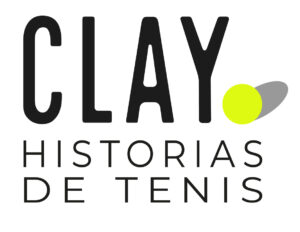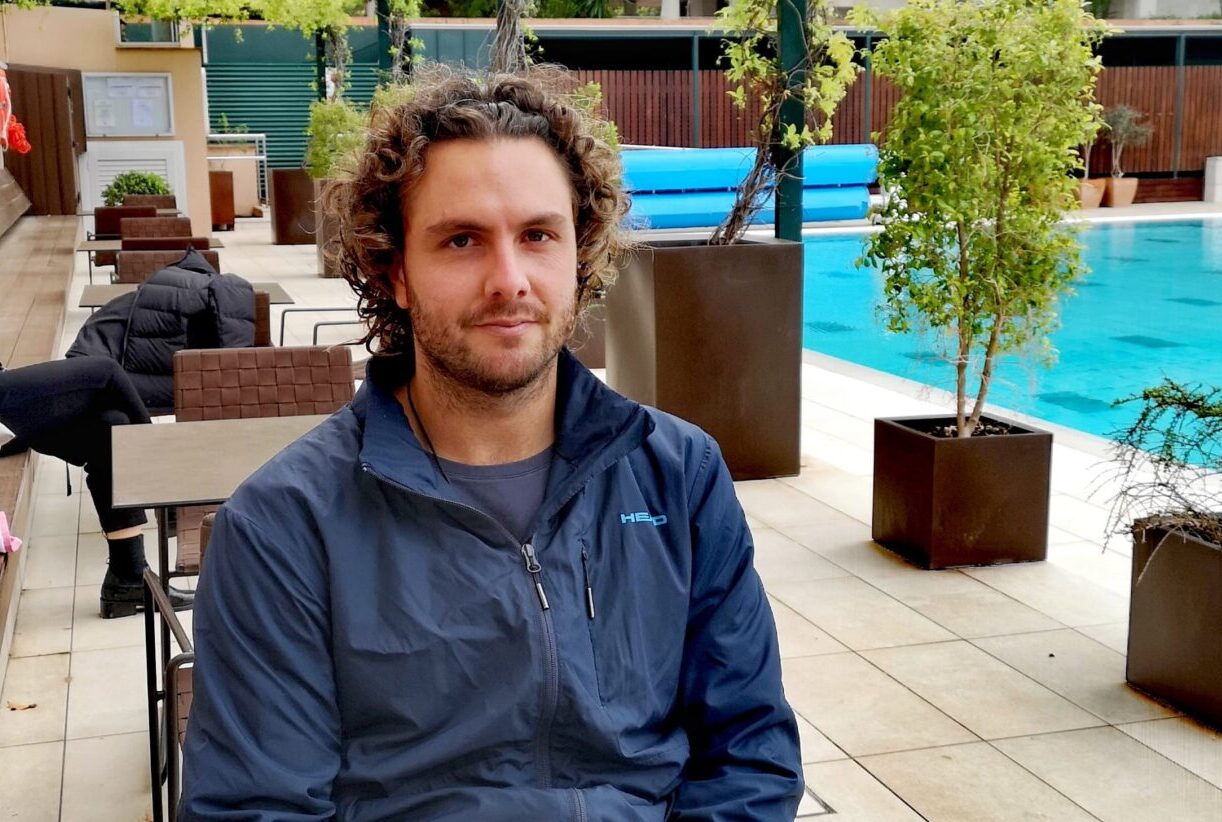
“I got rid of the hatred I had inside” – interview with Marco Trungelliti
BARCELONA – Fatherhood and the pandemic have changed Marco Trungelliti, who was at the center of the scandal some time ago when he denounced the manipulation of matches. At 34 years old, the Argentinean lives tennis in a different way, with more mental strength and his priorities clearer.
“I started to think differently to get rid of the hatred I had inside,” he says during an interview with CLAY next to the swimming pool of the Real Club de Tenis Barcelona.
He is 197th in the world, and his best ranking was 112, but he became known for reporting corruption in tennis to the the International Tennis Integrity Agency (ITIA). Trungelliti maintains his principles, although now he approaches his struggles from another place, more mature, more serene, more personal.
“It generated quite a bit of depression for me for a couple of years,” he confesses.
In the Conde de Godó Tournament he rediscovered his best version, overcame the qualy and reached the round of 16. Free of injuries and pending accounts, he talks in depth that today nothing prevents him from enjoying his sport and the good things it gives him, such as visiting Rwanda, a country that impressed him.
Trungelliti criticizes the handling of the institutions after his complaint, and clarifies that he has no interest in talking to his compatriot Federico Coria, one of those suspended after the case.
– Are you in one of your best moments?
– Yes, above all, mentally. I could have been playing better tennis before, but when I saw myself, I didn’t like what I saw. And mentally I was very immature. Even though I was 26 or 27 years old, there were things that I did not finish correcting mentally and, today I have been seven months injury-free. It was something important for me to know where I was standing. I am competing better and I am understanding a little more the issue of the downturns inside the court and trying to reverse the situation as quickly as possible. If mentally you are not there, the result is quite obvious. I’m not 20 years old and I can’t play 35 weeks a year, I don’t think I’ve ever done that in my life even if I was relatively fresh.
– Does this explain your triumph in the Kigali Challenger?
– Yes, although in a different situation, because there is altitude and the points are shorter, but, at the same time, you also have a little more pressure if you make a mistake with your serve. I had some experience playing at high altitude because before there were many tournaments in Colombia, with the same altitude. Mentally, it gave me a lot of air, mainly because I won a challenger after a long time and then because there was a certain change in terms of maturity when facing and approaching the matches from the mental side.
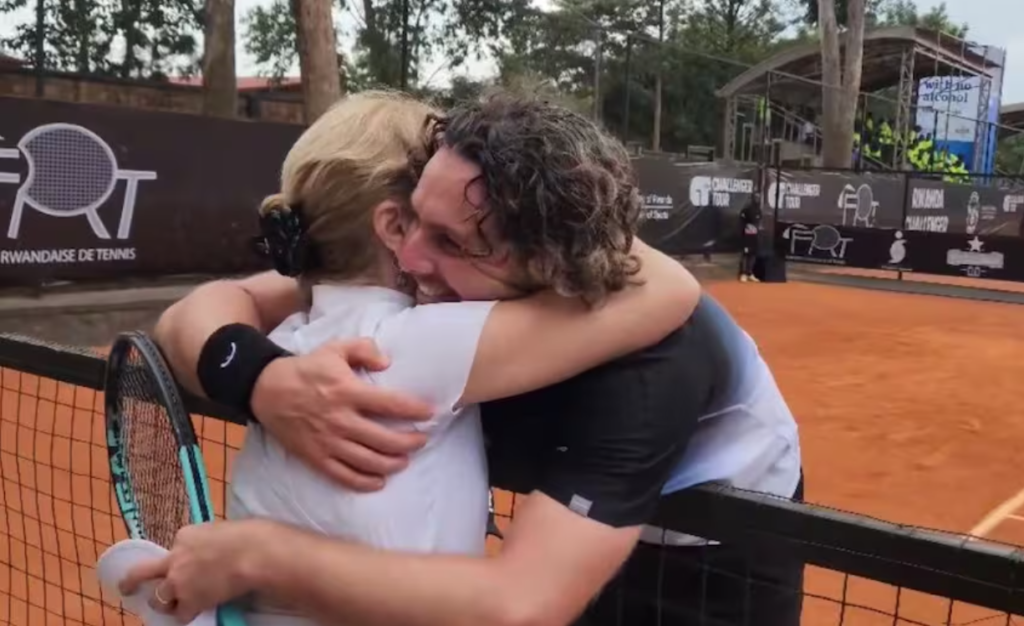
Marco Trungelliti and his mother after he won the Kigali Challenger, in Rwanda.
– Are you working differently, with a psychologist?
– I always had a psychologist. I had one before he passed away, called Juanjo Grande, and I started with another one called Tomás Navarro, who is well known in Spain. And although I am not one to be writing all week how my brain works, I take my time to analyze certain things and understand them. All my life I have been like that: I need to understand in order to know what I am doing, it is not that I am a little machine that accepts a terminology or a concept and just goes ahead. Having a son also helped me a lot to change my perspective.
– How did it change?
– I didn’t know which side I was going to take, if it was the side of retirement, of not wanting to miss anything, of being with my son and watching him grow up and enjoying him, or if it gave me a different perspective in the sense of giving the right importance to the things that happened to me, whether they were defeats, injuries or ways of going to a tournament. It was a question we were going to answer after his birth. Or maybe to choose staying at home… However, it came out the other way: I understood that maybe it was a time to push a little harder.
– How was the experience of playing in Rwanda? What is tennis like there?
– They are trying to open up. The fact that the ATP has put tournaments in Africa seems to me beautiful and great. Africa is, in general, a forgotten continent in all aspects. And the tournament was spectacular, they treated us like kings. It is a different culture, we saw an extremely safe country, in a continent that nobody thinks is safe. You talk to people and you get to know other experiences, the fact that 20 years ago they were shooting everywhere and it was a very poor country compared to what it is today, it is impressive when you see the clean streets and people who respect each other. Obviously there is a lot of prejudice, not necessarily bad, but because of ignorance. If more tournaments start to be held, people will change their perspective on Africa. I understand they’re going to continue with the tournament next year, so that’s great. I sent a couple of racquets for the people there who have been asking me. A little love for life!
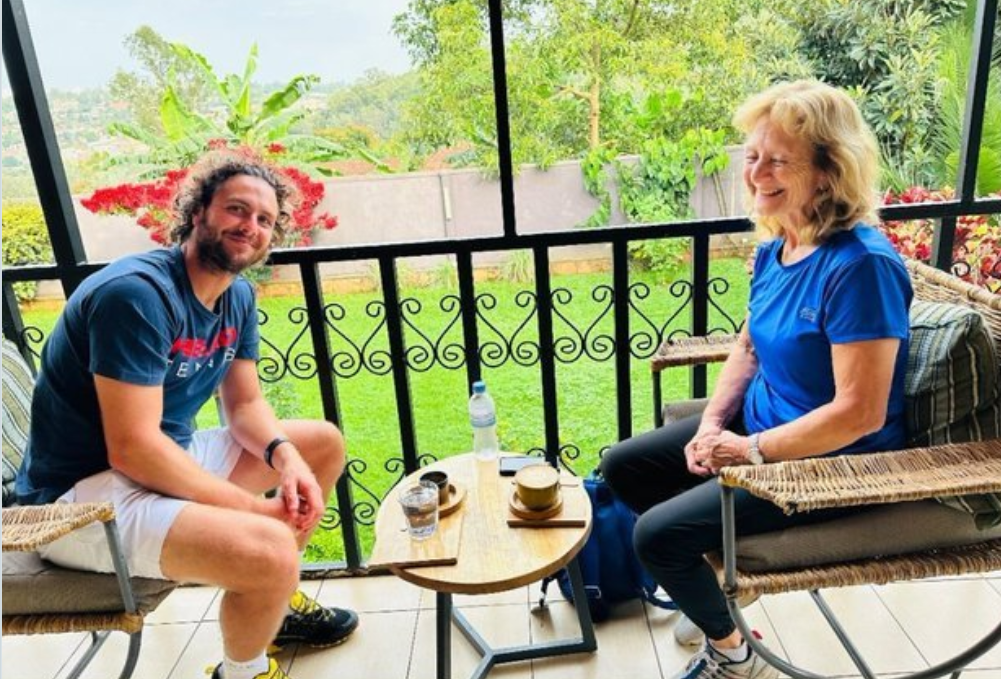
Marco Trungelliti is a big fan fan of coffee. In the picture, in a coffee shop in Rwanda with his mother // IG: MARCO TRUNGELLITI
– Did you have time to visit the country a little?
– Very little, but enough. I mean, it is never enough, but it was good because I like to do tourism as close as possible to the normal people to really know how they live or what they do or if they are happy or not, or what they expect, what they don’t expect, or maybe what they think of the people from outside. What I did do was visit the Kigali genocide memorial, which tells you the story of what happened there and it’s worth it; it gives you a good reality check.
– They went through a fratricidal and bloody war….
– Yes, tremendous… But today they call themselves all Rwandans, there are no more ethnic groups as there were before, although there is still a long way to go to heal, but, at least, you see them living in peace, relatively speaking; there is a lot of control, a lot of police, a lot of armed people and I think they are willing to do whatever has to be done to keep the peace. For what the country was like 20 or 25 years ago, everything is very valuable and maybe we, today, could learn a little bit.
– Years ago you carried the flag of fair play with your denunciation of match-fixing to the before the International Tennis Integrity Agency. Do you consider that chapter closed? Is there anything left to do? Do you think anything has changed since then?
– It will never be closed, because the stain was left for good and for bad. For bad, in the sense that it caused me a lot of depression for a couple of years; it was never diagnosed. But today, if I look back at how I saw myself and how I entered the court to try to play tennis, it was impossible. I never thought about committing suicide or anything like that, but it was very difficult for me on a daily basis. Today it doesn’t bother me. I always thought that the organizations could have acted differently and that would have helped a lot. I don’t know if it has changed. Maybe at the beginning I did expect it to change, but today, seeing how things are going and where everything is headed, I don’t expect anything anymore. I know how I am going to act, I know how I acted, I know how I will teach my son how to act and up to that point I am limiting myself. To think of something bigger, I think it is quite difficult nowadays and I think that maybe by doing our bit we can set an example to the people who matter.
– Personally, there is nothing left for you to think “I could have…”?
– Yes, maybe I would have prepared differently. I was very confident that the organizations were going to come out and support the people that we are obliged to do what I did; if people don’t do it, it’s different. I felt that they had to come out and say something, even if it was something stupid, putting on a piece of paper “this happened, we support all those who want to make this type of denunciation, etc.”. That would have been enough at one moment, then obviously not, but it would have helped the mental part of me a lot and that didn’t happen.
– Were you disappointed?
– Yes, very much so. I was quite hurt. It cost me injuries, it took me years, I was pretty bad until I got COVID in a tournament and I was locked in a room for 20 days. There I had time to think about everything I needed to think about. That, paradoxically, changed me; it changed my outlook in general and, from then on, I started to live much better.
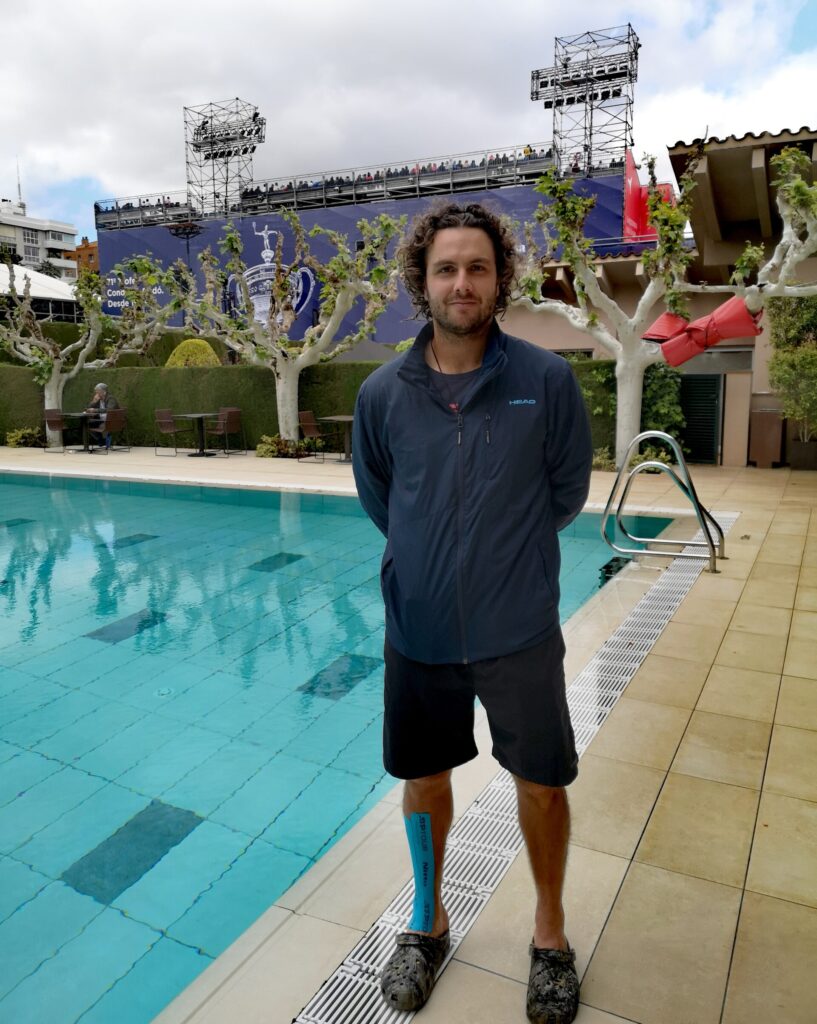
Marco Trungelliti in the venue of the Barcelona ATP 500 // NOELIA ROMÁN
– Were you able to talk about it in depth with any of your colleagues?
– Yes, I talked a lot. Some have another point of view, most of them, from what they told me, would never do what I did, but, basically, because of the response from the organizations, not because they don’t dare to do it. Seeing the mistreatment that I had, people then do not dare to do it, which is totally normal. I started to think a little differently, above all to get rid of some of the hatred I had inside, of anger, of desperation and, in the end, I think that, today, I am a little better. It helped a lot what I said, my son and to change my perspective a little bit and to stop giving so much importance to things that I could not do anything about.
– Federico Coria [one of the suspended players after Marco Trungeletti’s complaint] is doing well. Have you sat down to talk to him?
– No, and I have no interest, not even close to greet him or anything.
– Because you feel you may be at polar opposites or why?
– The way he behaved was pretty poor. Maybe what always bothered me is that many Argentines ended up supporting him instead of me. It’s like, either you support one or the other or you stay in the middle. And, for me, it was as if they left me aside quite a lot. That was the only thing I didn’t like about my country. Afterwards, I think that, with time, there was also a certain change of generation, the kids who come here are quite young and, when they meet me, they start to say ‘ah, well, maybe it was not so much what they said, but that I look like a more normal human being’. And that’s where we’re at. There are things that probably won’t come out anymore, but it doesn’t bother me, I’m fine now. And if Coria is doing well, in the end, you don’t necessarily have to be a good or bad person to do well. He is doing his job well, which is to play good tennis, he has good results and that’s it, there’s no more to give him.
– How did you feel last year when you returned to Argentina after a few years of not going?
– A mix of feelings. I think it is, in general, with the situation of the country, that you see people very stressed, sad, and they are close people, family, friends, and that never ends up being nice.
– Are you worried about the political situation?
– Yes, the whole thing is quite heated there, so I did not enjoy it very much and, at the moment, I do not choose to go back, even though I have a family there.
– Do you follow what is going on closely?
– More or less, because my life in the future will never be there. I will stay in Andorra, where I am with my wife. If worse comes to worst, we will migrate somewhere else, but Argentina today is extremely far from any mental option we have to do that, especially because of raising our son. I didn’t enjoy it very much, but it was good to go, partly because I visited my grandmother, who was already closer to leaving than staying; she passed away after two weeks and it was like she was waiting for us, so we went to that. And then for the tennis part, too, because it was time to say enough with this not coming back because of what happened a long time ago. It was eating my head in a certain situation to have a conversation with my son in the future and say ‘no, I didn’t go back because I never dared to or because I was afraid of or because of the things they might say’. I wanted to get that weight off my shoulders and, in the end, I got it off. If I have a conversation with my son tomorrow, I will say ‘yes, it was hard, but in the end, we came back, which was the important thing’.
If you liked this interview with Marco Trungelliti, don’t miss, in this link to our site, many other interviews to the great protagonists of tennis.
